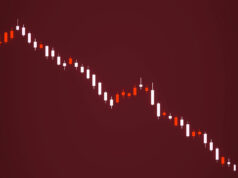Peso climbs ahead of BSP meet

THE PESO recovered against the dollar on Wednesday ahead of likely upbeat signals from the central bank’s monetary policy meeting.
The local currency ended yesterday’s session at P52.235 versus the greenback, 17.5 centavos stronger than the P52.41-per-dollar finish last Monday.
The peso traded stronger the whole day, opening the session at P52.34 versus the greenback. It dropped to as low as P52.35 intraday before closing the session at its best showing.
Dollars traded declined to $746.4 million from the $842.9 million that switched hands the previous day.
A trader said the peso strengthened yesterday after market participants aggressively sold their dollars in favor of the peso near the close.
“The peso closed stronger as we saw a lot of selling ahead of the policy meeting of the BSP (Bangko Sentral ng Pilipinas),” the foreign exchange trader said in a phone interview.
The BSP’s policy-setting Monetary Board (MB) is widely expected to keep its interest rates untouched during its review today at the 4.25-5.25% range, taking its cue from the dovish tone of US central bank officials as well as the softening local inflation.
On Tuesday, the Philippine Statistics Authority reported that inflation stood slowed to 4.4% in January, slower than the 5.1% tallied in December.
“The market is expecting no change on the rate, but given the [slower] inflation, the message from the MB is seen to support the peso,” the trader added.
However, the trader noted there was a “disconnect” from the peso’s strengthening given that the offshore market was buying dollars after onshore trading closed.
Meanwhile, another trader attributed the stronger peso to the softer-than-expected inflation report.
For today, the first trader expects the local currency to trade between P52.20 and P52.40, while the other gave a P52.10-P52.30 range.
Most other Asian currencies in the region remained subdued in holiday-thinned trade.
“The (emerging) markets are a lot more instinctive to bullishness after the Fed shifted its stance” said Jeffrey Halley, a senior market analyst at OANDA, Singapore. — K.A.N. Vidal with Reuters



